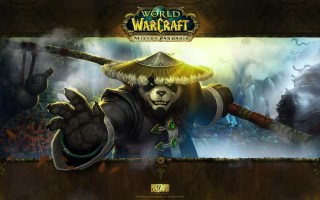Ennui is a common affliction across humanity. It affects relationships, careers and even politics. The same repetitive stimulus becomes less effective each time it occurs.
This dissatisfaction is a powerful force – one that drives us to break up, change jobs or vote for the opposite team. In fact, ennui is such an important factor that humanity would quickly become stagnant without it.
Combating the Curse
World of Warcraft has been around for 8 years now. In a 25 year old industry, that is ancient, unprecedented and intimidating. From a distance, it’s an untouchable success, yet every expansion Blizzard deals with a sea of naysayers and frustrated customers disappointed by the new expansion.
If you step back and look at each expansion sequentially, there is little doubt that each one has been a dramatic improvement upon the previous one.
Classic WoW was a smash success which was a dramatic step up from Everquest, the previous industry leader.
Burning Crusade saw a dramatic expansion of the talents system and an explosion of scripted boss encounters. Wrath of the Lich King saw the rise of story-driven questing, closed by the death of Arthas, a popular hero/villain of Warcraft 3. Cataclysm literally rebuilt the entire game from scratch.
Mists of Pandaria introduced a new continent, dramatically increased the artistic level of the game and brought a sweeping revision of the talent system that effected every character in the game.
Despite this, you hear about players logging in, playing for a while, getting bored and leaving. What’s going on?
“The Game Hasn’t Changed”
If you were expecting to hear either pro-blizzard or anti-blizzard tirade here, guess again. The problem isn’t with the game – it’s with you. Hold on now, don’t throw that keyboard at me, hear me out. The longer you’ve been playing this game, the more you’ve lived through numerous reputation grinds and thousands of random battlegrounds.
These systems worked. You’ve spent hundreds of days working hard to achieve whatever goals you had. Millions of other players are still playing the game and enjoying them too.
There’s something bigger that’s changed here: You.
I struggled with this a lot during the Lich King era. As my guild fought through Ulduar and was about to enter the Coliseum, I found myself disinterested with the game, despite knowing personally the extremely epic experience awaiting in Icecrown Citadel.
After spending some time self-reflecting, I realized I wasn’t interested in playing the game any more. In 6 years, I had gone from being a carefree college student, slipping Arathi Basin matches in between classes, into a self-sustaining adult working 40-60 hour weeks and riding motorcycles on the weekends.
I knew firsthand that each WoW expansion was hands-down better than the last. My brain didn’t care and I quit raiding with my guild.
The Trouble with MMOs
“MMORPGs are dead” cries the random voice on the forums. While he’s not right, as proven by the continued success of WoW and other games in Korean and China, he’s not wrong either. The point he’s correct on is that MMOs are dead to him.
Anyone who’s played an MMORPG for long usually hits a point where they need to start interacting with other players. For many, this becomes an amazing period, filled with new relationships, new socialization and mutually shared experiences.
These social bonds harden and often reach far outside the game. The now famous “Guild Guilt” -the tendency to keep playing to stay in touch or preserve the relationship with their guild – is famously credited with the long-term success of MMOs.
Unfortunately, this same force is also a huge factor in their decline. Over time, as people become afflicted with ennui, their negativity carries over into the social circles they inhabit. At school during lunch or over the water cooler at work, WoW is no longer the exciting topic it once was.
This leads to a snowball effect, where just as quickly as a game rose to popularity, it declines. For the MMO genre, this is insanely costly. While most of the hardware required to run Skyrim was purchased by me, the hardware required to connect thousands of players is expensive, requires constant maintenance and quickly becomes obsolete as players consume the content, then leave.
Why Does WoW Survive?
Blizzard constantly pushes themselves to be better. Each new generation of designers builds on the shoulders of the previous generation. Quite simply, Blizzard demands that each employee keep growing and pushing the company forward.
I felt this firsthand while working on my second game at Blizzard, when a guy I had worked with daily left the company. A few days earlier I had asked him what his dream was.
He turned to me and said, “quite frankly, I’ve always wanted to be a gym teacher, but I don’t know how to walk away from this.”
Afterwards, I talked to other people about him and his work. “You know, before WoW shipped, he was the best we had, but where others kept pushing forward, he was stuck.”
Those dreams are important – when your actions are aligned with your dreams or beliefs, you push not only yourself, but also your coworkers along with you. This is how successful companies work – by hiring and inspiring people better than themselves.
Slowing the growth of Ennui
Ennui is inevitable. It can only be slowed, never stopped.
The first tool is to increase the stimulation provided to the players. You can see this in the increased quality of art, boss fights, questing and game systems. By increasing the quality of the game, the novelty and learning reactivates the brain and helps keep the player engaged.
The next tool is to have a nigh-unreachable ceiling on the game, coupled with a steady sense of personal growth and progress. This sense of growth and mastery helps reinforce the player’s investment in the game world.
 |
| Come back, soon! |
Finally, you can accept that players need a break and build systems that allow players to leave for a while and come back unpenalized.
The introduction of scroll of resurrection, cross-patch questlines and super-rich quest content at the beginning of each expansion are great examples of giving players the ability to play your game as periodic content.
This one is fragile – as the tendency for expansions to reset the player’s progression to allow new players to catch up is directly in conflict with the sense of rewarding players who have already obtained that power. You can see this issue delicately handled with the release of new item levels.
Push yourselves. Master the unmasterable. Be comfortable letting go.
These are the virtues that Blizzard encouraged and it shows.






